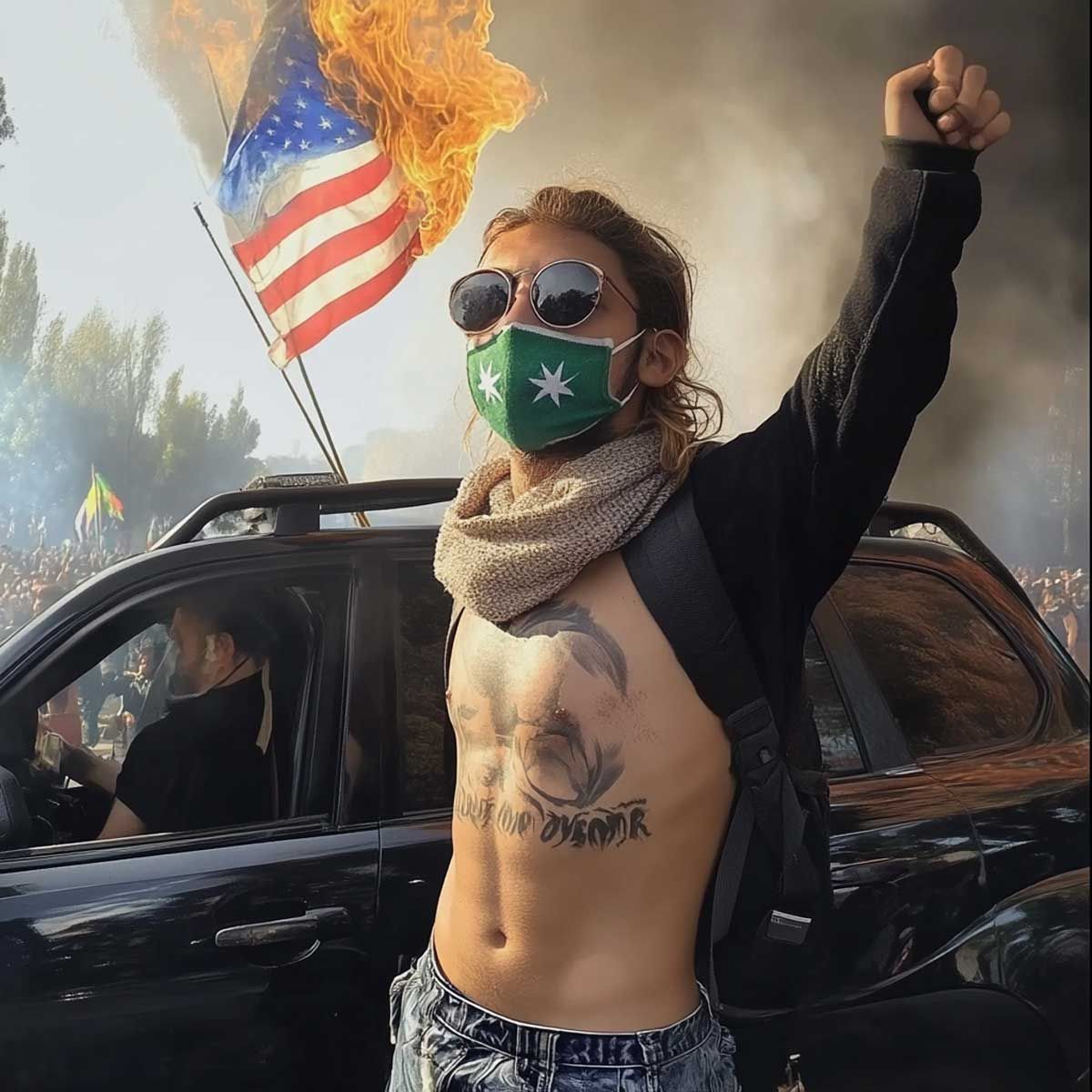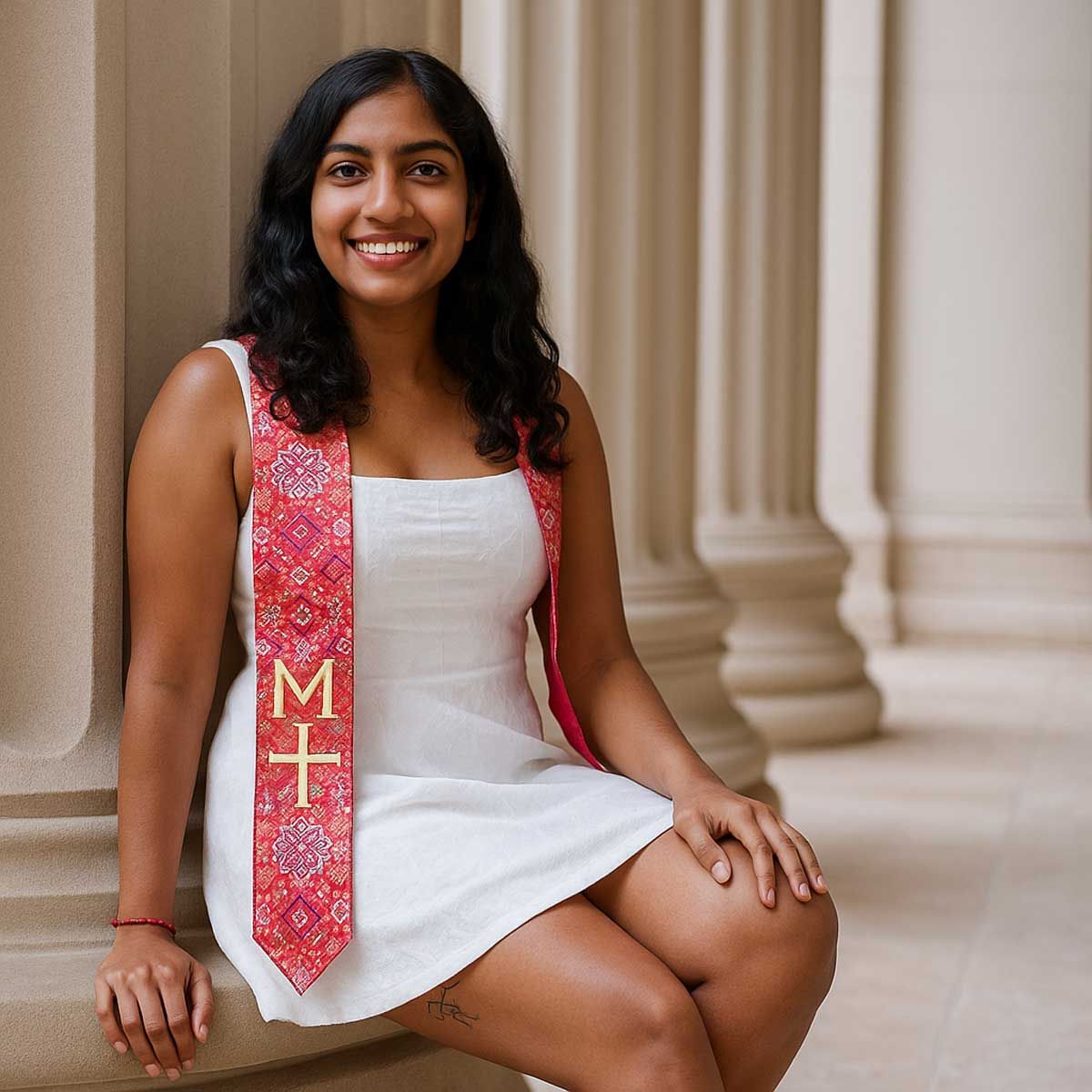Sanatan Articles
Satyaagrah
Written on
Satyaagrah
Written on
Satyaagrah
Written on
Satyaagrah
Written on
Satyaagrah
Written on
JOIN SATYAAGRAH SOCIAL MEDIA
Pasumpon Muthuramalinga Thevar, a titan of Tamil Nadu's politics, was a sage-like nationalist and social reformer who defied oppressive norms and championed equality for all, whose name still sends shivers down the spine of Dravidian demagogues

Pasumpon U. Muthuramalinga Thevar is remembered as a pivotal figure who transcended the boundaries of just one region or community through his impactful actions and humanitarian efforts. Despite his significant contributions, including the donation of thousands of acres of land to dalits and Muslims and his efforts to abolish the Criminal Tribes Act, his legacy is often confined within the state of Tamil Nadu and associated predominantly with one community.
|
Notably, Thevar also played a crucial role in supporting A Vaidyanatha Iyer to facilitate the entry of dalits into the Sri Meenakshi Sundareswarar Temple in Madurai on July 8, 1939, marking a significant moment in the fight against caste-based discrimination.
Born on October 30, 1908, in the village of Pasumpon in Ramanathapuram district, Thevar was a landowner of significant stature, with ownership of 32 and a half villages. His death also occurred on his birthday, October 30, in the year 1963, in Thirumangalam near Madurai.
Each year, his birth and death anniversaries, observed as Gurupooja, draw hundreds of thousands of people to his memorial in Pasumpon to honor his life and works. However, there is a sense of disappointment among his admirers that these commemorations are overshadowed by communal overtones. On this 107th birth anniversary and 52nd Gurupooja, an extensive police force has been mobilized to manage the event and maintain order.
Thevar's role in Indian politics was not just limited to regional influence but extended to significant national impact. His support was instrumental in a major political upset during 1939 when Netaji Subash Chandra Bose won the presidency of the Indian National Congress over Mahatma Gandhi’s nominee, Pattabhi Sitaramaiah. This victory is often attributed to Thevar's considerable influence within the party.
Further asserting his political clout, Thevar played a key role in the 1945 Tamil Nadu Congress Committee president selection. Contrary to Gandhi's preference for Rajaji (C. Rajagopalachari, then governor general of India), Thevar threw his support behind Kamaraj, leading to Kamaraj's successful election.
|
Thevar's stature was such that, along with Bal Gangadhar Tilak, he was one of the two freedom fighters whom the British government specifically prohibited from making political speeches—a restriction known in Tamil as "Vaai Poottu Chattam."
In a dramatic assertion following the end of World War II, when the Japanese government announced Netaji's death in an air crash on August 18, 1945, Thevar publicly contested the claim. On January 23, 1949, coinciding with Netaji's birthday, Thevar declared that Netaji was still alive and that he had met him. This bold statement prompted the central government to establish the Shah Nawaz Committee to investigate the circumstances surrounding Netaji's death, showcasing Thevar's influence in prompting governmental action.
T. Harappa of the Thevar Peravai PolitBureau underscores Thevar's commitment to inclusivity and opposition to communalism in politics by stating, “In fact, Thevar fielded persons of other communities in the elections and struggled against communal domination in the state. His victory against Shanmuga Rajeswara Naganatha Sethupathi in the Mudhukulathur assembly constituency in 1937 was a classic example to show that he was a man above communalism.”
Thevar's support extended to practical help for political aspirants regardless of their economic standing. This is evident in how he assisted K. Kamaraj, who would go on to become the chief minister. As Harappa mentioned, Thevar helped Kamaraj enter a municipal election by giving him a goat and paying the necessary tax in Kamaraj's name. This gesture was significant at the time because candidates were required to be property holders to contest elections, a criterion Kamaraj did not meet without Thevar's help.
V.S. Navamani, president of Pasumpon Thevar Sindhanai Peravai, sheds light on the philanthropic and reformist aspects of Thevar's legacy, emphasizing his considerable contributions to social welfare and labor rights. As a landlord, Thevar donated a substantial amount of land, totaling 87,000 acres, to the Dalit community, demonstrating his commitment to social justice and empowerment for marginalized groups.
Thevar's activism extended into the labor movement, where he led 23 trade unions, advocating for workers' rights and benefits. He was outspoken against unethical electoral practices like cash for votes and championed progressive labor policies, including advocating for maternity leave for women, which highlights his forward-thinking approach to social issues.
One of his significant endeavors was to work towards the repeal of the Criminal Tribes Act, a piece of legislation that stigmatized entire communities by branding them as inherently criminal. Thevar's efforts in this regard were part of his broader mission to dismantle discriminatory laws and practices, aiming to create a more equitable society.
|
|
A formidable force in Tamil Nadu's political arena, a staunch advocate for the downtrodden, and a zealous nationalist
Pasumpon Muthuramalinga Thevar stands out as a nationalist figure whose legacy continues to resonate powerfully, especially when considering his defiance against the Dravidian political entities of his time. His reputation as a formidable leader is encapsulated in an incident from June 23, 1933, when the sun hung low over Virudhunagar, casting long shadows that mirrored the tension gripping the town. Word had reached Thevar that Kamarajar, a dedicated Congress volunteer, had been spirited away by the Justice Party to thwart his candidacy in the municipal elections—a move to weaken the Congress's foothold.
With the speed of the monsoon winds, Thevar, a lion among men, raced from Sayalkudi to Virudhunagar. The earth seemed to tremble beneath his feet, the air crackled with the urgency of his mission. Upon arrival, he summoned the Congress cohorts, his voice thundering across the town as he called for a public meeting. As he stood tall on the stage, his presence was a beacon, his words the rallying cry for justice.
“I know that some members of the Justice Party have kidnapped one of our party’s true volunteer from contesting elections. Kamaraj should come here before the meeting gets over and I leave the stage. Otherwise, those who kidnapped him will face the consequences,” Thevar proclaimed, his voice booming, his gaze steely, piercing through the gathering dusk.
|
Like a spell breaking, his command seemed to shake the very foundations of the opposition's resolve. Before the echo of his words had faded, Kamarajar was released, appearing near the stage as if conjured by Thevar's indomitable will. He stepped up to join Thevar, his expression one of deep gratitude, while the members of the Justice Party, chastened and humbled, could only watch as their ploy crumbled before the might of Thevar's authority.
This was Pasumpon U. Muthuramalinga Thevar, the hero of the hour, whose roar sent shivers down the spine of Dravidian demagogues and whose legend was carved into the annals of time, as solid and enduring as the statues that would one day bear his likeness.
The early life of Muthuramalinga Thevar was marked by personal tragedy and a quest for knowledge that would define his character and future endeavors. Born to Ukkirapandi Thevar and Indiraniammal Thevar, he was but an infant when his mother passed away, leaving him in the nurturing care of his maternal grandmother, Parvathiammal. It was she who imbued the young Thevar with the rich tapestry of cultural and ethical values, drawing from the ancient epics of Ramayana, Mahabharata, and Bhagavadham, which would later influence his worldview and principles.
As he grew, Thevar was fortunate to have the support of his father’s family friend, Kuzhanthaisami Pillai, in his educational pursuits. He developed a fervent passion for Tamil culture and its vast literature from an early age, but his formal education was cut short by a plague that ravaged the Ramnad region. Undeterred, Thevar's quest for knowledge continued unabated. He immersed himself in a wide array of subjects including politics, history, public affairs, religion, philosophy, and various sciences like Vanasastra, Ayurveda, Siddha medicine, and even astrology.
Thevar's education was not confined to intellectual pursuits; he also trained in Silambam, a traditional form of martial arts, and learned horse riding and rifle shooting, skills that perhaps contributed to his later persona as a formidable leader.
In time, Thevar's mastery of language and his innate understanding of cultural and political landscapes saw him emerge as an eloquent speaker, captivating audiences with his command over both Tamil and English. This eloquence would eventually make him a compelling public figure, able to communicate his vision and inspire others with his oratory.
Contribution to the Indian National Movement
Muthuramalinga Thevar's involvement with the Indian National Movement is a testament to his deep-seated patriotism and his influential role in India's struggle for independence. At the tender age of 19, Thevar's political journey took a decisive turn when he joined the Congress party, serving as a volunteer during the 1927 Congress session in Madras. His dedication caught the eye of many, cementing his position as a significant figure within the party.
Thevar's allegiance and collaboration with Netaji Subash Chandra Bose were profound. Their relationship was symbolized by a poignant moment when Netaji introduced Thevar to his mother, saying, “I have brought my younger sibling to our home,” reflecting the deep bond and mutual respect between the two freedom fighters.
In a pivotal move during the 1939 Congress session at Tripuri, when Gandhi backed Pattabhi Sitaramayya for the post of Congress President, Thevar threw his support behind Netaji, contributing to his reelection as President. This act not only demonstrated Thevar's political influence but also his vision for India's future leadership.
Beyond political advocacy, Thevar was instrumental in rallying support for the Indian National Army (INA), led by Bose. His influence was such that his call to join the INA resonated across the southern districts of Madurai, Ramnad, Rameshwaram, inspiring lakhs of men and women to enlist. Thevar's dedication to the cause was further exemplified by his establishment of the Tamil weekly “Nethaji,” through which he galvanized the youth to become part of the INA's ranks.
The legacy of Thevar's efforts in support of the INA endures in the region, as evidenced by the continued tradition of military service among the youth. This enduring impact is highlighted by the story of Havaldar Palani, hailing from Ramanathapuram, who made the ultimate sacrifice during the Galwan Valley clash with the Chinese PLA. The commitment of these individuals to the defense of the nation echoes the spirit of dedication and patriotism that Thevar and Netaji instilled in their people many years ago.
Real Voice of the Oppressed
Thevar's activism and leadership were not limited to the broader nationalistic struggle for India's independence but also extended to advocating for the rights of the oppressed within society. His fight against the Criminal Tribes Act (CTA), introduced by the Madras Presidency in 1920, showcases his dedication to justice. The CTA was a discriminatory law that stigmatized entire communities by labeling them as inherent criminals, a policy supported by the Justice Party, which later evolved into today's DMK.
Thevar stood at the forefront of resistance against this oppressive legislation. He organized and led vigorous protests, urging the Maravars of 19 villages in Appanad to defy the forced registrations mandated by the CTA in 1929. His relentless campaign against the Act drew a sharp divide between him and the then-ruling Dravidian leaders, whom he saw as complicit with the colonial government's repressive measures.
Firm in his belief that the Congress party would overturn the CTA and uplift the poor, Thevar actively campaigned for it. However, his hopes were dashed when Rajaji, after becoming Chief Minister, failed to fulfill the promise of repealing the Act, instead adopting policies that Thevar viewed as supportive of the CTA. The Congress party's repeated arrests of Thevar for his labor strikes and protests against the CTA were indicative of the political and ideological rifts that were forming.
Disillusioned with the Congress party's stance, Thevar's commitment to the principles of equality and justice led him to join the Forward Bloc, which was established by Netaji Subash Chandra Bose. Thevar's switch to the Forward Bloc was a significant moment in his political career, marking his continuous struggle against the injustices perpetrated by both colonial and local authorities.
Thevar's activism extended into the labor sector, where he witnessed the exploitative use of the Criminal Tribes Act (CTA) against workers and laborers in factories and mills. In response, he founded labor unions such as the Pasumalai Mahalakshmi Mills Workers Union, Madura Knitting Company Labour Union, and Meenakshi Mills Textile Workers Union. Through these unions, Thevar championed the rights of workers, securing their ability to work with dignity and combating the misuse of the CTA to oppress them.
His advocacy was not limited to labor rights. Thevar also played a pivotal role in the social movement to ensure temple entry for Dalits in Tamil Nadu, which was a significant step towards dismantling caste-based discrimination. When Vaidyanatha Iyer, who was orchestrating the entry of Dalits into the Madurai Meenakshi Amman temple, faced severe opposition and threats from conservative factions, Thevar's support was sought.
At Rajaji's suggestion, Vaidyanatha Iyer approached Thevar, who, understanding the gravity and moral imperative of the situation, intervened with decisive action. He issued 'bit notices'—a form of public announcement—throughout the city, which stated boldly: “I would be there at the entrance of the Meenakshi Amman Temple. Those who dare to prevent the Dalits entering the temple shall come and meet me. I will answer them.” This proclamation was a clear challenge to any who would enforce caste segregation, and it had a profound effect. The potential aggressors, faced with the prospect of confronting Thevar—a man of formidable reputation and influence—dispersed in disarray, allowing the historic temple entry movement to proceed without incident. Thevar’s direct and forceful approach was instrumental in ensuring the success of this critical step towards social reform.
|
A Firebrand Nationalist
Thevar's persona as a firebrand nationalist was intricately linked to his belief in the intertwining of nationalistic fervor and spiritual consciousness. He held the conviction that "Politics without divinity is a body without soul," a principle he consistently imparted to his followers. His philosophy underscored the idea that political action should be guided by moral and spiritual values.
Spearheading Netaji’s Forward Bloc in Tamil Nadu, Thevar emerged as a formidable nationalist voice from the region. His magnetic appeal and the trust he inspired were evidenced in an electoral victory where, despite being from a constituency where his community had only about 18,000 voters, he won by a staggering margin of 1 lakh votes. This win was a testament to his widespread support that transcended communal lines.
Within the halls of Parliament, Thevar’s nationalism manifested through his strong opposition to the special status accorded to Kashmir under Article 370, reflecting his vision for a united India without special provisions that could foster a sense of separateness.
Thevar also stood against the divisive North-South rhetoric propagated by the Justice Party and its ideological descendants, including DK, DMK, and other Periyarist organizations. He viewed such divisions as detrimental to the fabric of national unity and worked to counteract the sentiments of regionalism that he believed could undermine the collective identity and strength of India as a nation. His stance made him a counterweight to the regionalist and separatist ideologies of his time, marking him as a staunch defender of a singular Indian identity.
Muthuramalinga Thevar's life was one of spiritual austerity, reflecting the traits of a sage. Despite his affluent background, he embraced celibacy and dedicated his life to philanthropy, notably donating his wealth to uplift the Dalit community. His selfless actions have earned him a god-like reverence among the people of his region, who look up to him for his dedication to social equality and justice.
However, the rise of E.V. Ramaswamy Naicker and the subsequent glorification by the Dravidian parties have somewhat overshadowed Thevar's multifaceted legacy, casting him narrowly as a caste leader. This reduction of his broad nationalistic and philanthropic impact to mere caste dynamics is a disservice to the breadth of his contributions.
Despite the complexities of his political portrayal, Thevar's legacy is universally acknowledged every year on his birth and death anniversary, known as 'Guru Poojai.' On this day, individuals from various political ideologies and parties unite to pay homage to him, recognizing the indelible mark he left on the nation's conscience. Nonetheless, the sanctity of this commemoration has been diluted by the Dravidian parties, particularly the DMK. Accusations suggest that they exploit the occasion as a mere photo opportunity to curry favor with the Thevar community, thereby attempting to secure the Thevar vote bank rather than genuinely honoring the leader's true ethos and his contributions to the nation.
 Support Us
Support Us
Satyagraha was born from the heart of our land, with an undying aim to unveil the true essence of Bharat. It seeks to illuminate the hidden tales of our valiant freedom fighters and the rich chronicles that haven't yet sung their complete melody in the mainstream.
While platforms like NDTV and 'The Wire' effortlessly garner funds under the banner of safeguarding democracy, we at Satyagraha walk a different path. Our strength and resonance come from you. In this journey to weave a stronger Bharat, every little contribution amplifies our voice. Let's come together, contribute as you can, and champion the true spirit of our nation.
 |  |  |
| ICICI Bank of Satyaagrah | Razorpay Bank of Satyaagrah | PayPal Bank of Satyaagrah - For International Payments |
If all above doesn't work, then try the LINK below:
Please share the article on other platforms
DISCLAIMER: The author is solely responsible for the views expressed in this article. The author carries the responsibility for citing and/or licensing of images utilized within the text. The website also frequently uses non-commercial images for representational purposes only in line with the article. We are not responsible for the authenticity of such images. If some images have a copyright issue, we request the person/entity to contact us at This email address is being protected from spambots. You need JavaScript enabled to view it. and we will take the necessary actions to resolve the issue.
Related Articles
- Cross Agent and the hidden truth of massacre of Jallianwala Bagh - Martyrdom of Shaheed Bhagat Singh (Some Hidden Facts)
- Hero of Pawankhind: Veer Maratha Bajiprabhu Deshpande, who led 300 Soldiers against 12000 Adilshahi Army defending Shivaji
- Birth of our National Anthem: Original recording of 'Jana Gana Mana' performed by the Radio Symphony Orchestra of Hamburg, Germany, 1942 in the presence of Netaji Subhash Chandra Bose
- During Partition Hindu and Sikh refugees concentrated in Delhi to a humiliating and dehumanizing experience whereas Muslim were being provided with rations, funds, jobs and shelter: MK Pahwa try to assassinate Gandhi
- Paramahansa Yogananda: Spiritual journey of a saint who was known as The Father of Yoga in the West
- "I had a calling to become what I became - I was created to do this": Srinivasa Ramanujan, mathematical genius who knew infinity credited his all formulae to visions of Mahalakshmi, "An equation for me has no meaning, unless it expresses a thought of God"
- British PM accepted that “the tide of nationalism is running very fast in India" and the mutiny of the Royal Indian Navy in 1946 forced colonial masters Britain to leave India: What followed was betrayal by Congress
- UNESCO World Heritage Site "Great Living Chola Temples": Brihadeeshwara Temple dedicated to Shiva located in Thanjavur in Tamil Nadu, built by emperor Raja Raja Chola I is one of the largest temples in India of Dravidian architecture during Chola period
- “Architecture should speak of its time and place, but yearn for timelessness”: Beautiful Mandore Garden located in the city of Jodhpur, Rajasthan known for its rich history, stunning architecture, and lush greenery, making it a popular tourist destination
- अथ रामचरितमानस प्रकाशन कथा: गीता प्रेस, गोरखपुर ने 1938 से रामचरितमानस का प्रकाशन शुरू किया
- How Communists betrayed India - 100 Years of Russian Revolution
- Wikileaks and 5 lesser know facts of Indira Gandhi: Nuclear technology, corruption and foreign relations
- "Loyalty to petrified opinion never yet broke a chain or freed a human soul": The First PM of India, Jawaharlal Nehru in 1956 took Freeman's oath "to be true to the Queen of England", and was given documents of the Freedom, contained in ornamental caskets
- China attacked India just three years after PM Nehru reduced the defence expenditure by Rs 25 crores: Union Budget 1959
- How Nehru had laid blue print of Indira Gandhi inheriting his PM post





















